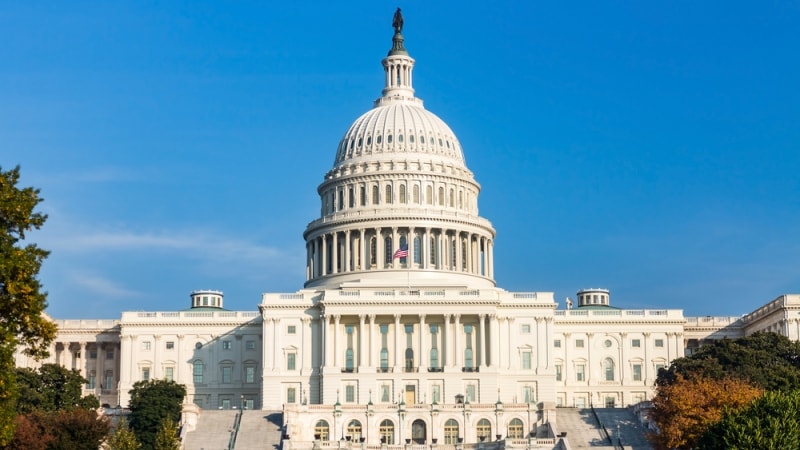
Artificial intelligence (AI) technologies – and their potentially huge impacts on the economy and the American workforce – are generating plenty of buzz on Capitol Hill but not yet enough to solidify any large-scale legislative agendas that would impact the technology and its use.
That was the message from three members of Congress who spoke about AI-related legislative issues at a Politico event on Sept. 17.
The co-chairs of the Congressional Artificial Intelligence Caucus – Reps. Pete Olson, R-Texas, and Jerry McNerney, D-Calif. – said the caucus has 24 members currently, and that the aims of the co-chairs mostly are still focused on educating members of Congress about AI.
“We have made a lot of progress, held lots of meetings, and seen lots of interest,” said Rep. Olson. “Our jobs as co-chairs is to educate, then legislate,” and to help “people understand the future, then deal with the future.”
“My main goal is to educate Congress,” Rep. McNerney said, adding, “If you don’t know much about [AI], it’s scary … We want to make sure America has the lead in the technology.”
Outside of considering administration AI funding requests – which have been growing – the congressmen said that legislative efforts on AI are mainly directed to giving practical and policy resources to Federal agencies to speed their involvement with the technology.
Rep. McNerney spoke about a bill he introduced earlier this year – the AI in Government Act – that would:
- Establish AI centers of excellence within the General Services Administration; promote Federal government development of “innovative” uses of AI;
- Task the Office of Management and Budget (OMB) to issue guidance to Federal agencies on AI governance approaches; and
- Have the Office of Personnel Management (OPM) establish an occupational job series covering AI skills.
The bill was introduced in May, and continues to await action in the House Oversight and Reform Committee.
On the AI funding front, Rep. Olson declined to endorse any specific spending bill with AI funding in it, but said more generally, “our job right now is to get more money” to develop the technology. He reckoned that the Chinese government could be outspending the U.S. government on AI-related items by a rate of four-to-one, and that the U.S. needed to respond with more funding of its own.
Both agreed that issues of data security and algorithmic bias were important to address, but differed in tone as to how the Federal government might regulate in that area. Rep. McNerney said, “we need to put standards out there” on security and bias, but Rep. Olson cautioned that the government should employ a “soft, soft touch with regulation,” and “trust the private sector” as it develops AI technology and applications.
Speaking separately at yesterday’s event, Rep. Bill Foster, D-Ill., said that legislative action on AI faces another significant hurdle – technology issues are split among seven different House committees, and those competing jurisdictions will inevitably put sand in the gears of lawmaking efforts.
“It means that no committee is in charge of AI,” he said. Rep. Foster suggested that Congress create a “free-standing committee” in charge of tech issues, given the tech-sector’s increasingly large share of U.S. economic output.
He also recommended that Congress revive the Office of Technology Assessment, which until 1995 provided members of Congress with objective analysis of complex scientific and technical issues. “We need a way for Congress to up its technical game,” he said.
